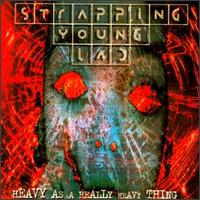..more than mora meeeaaans!
Hey hey hey the URL of this forum has changed! I've been missin a lot.
I remember this question was asked many years ago on the old HDR email list. Unfortunately I don't have any of the emails from those days, so I'll have to rely on my rusty memory...
... but I seem to recall Tracy mentioning that Mora was something like Dev's word for "divine female energy", present in everyone. Kind of like one's feminine side, I guess.
Ro
... but I seem to recall Tracy mentioning that Mora was something like Dev's word for "divine female energy", present in everyone. Kind of like one's feminine side, I guess.
Ro
shit i should actually read the threads before making posts eh
In Polish mythology, mora are the souls of living people that leave the body during the night, and are seen as wisps of straw or hair or as moths. In certain Slavic languages, derivatives of word mora actually mean moth (for example, see Czech word můra).
In Serbian language, word "mora" refers to a "nightmare". Mora or Mara is one of the spirits from ancient Slav mythology. Mara was a dark spirit that takes a form of a beautiful woman and then visits men in their dreams, torturing them with desire, and dragging life out of them.
[url]http://en.wikipedia.org/wiki/Mora_%28mythology%29
sounds like there are a few more different interpretations aswell
MORA, MARA, MORENA, MARZENA
goddess of harsh winters, cold, suffering, death and all corresponding emotions. Her name is obviously derived from common Slavic root "mor" (death, deadly illness) or from verb "moriti" (to murder, to kill). Another relation can be made to pan-Slavic word "morz" (frost, cold). Mora inhabits the Underworld and controls the souls of deceased which are also called "mora".
Mora can easily be identified with ancient Germanic Hell, whos name in Germanic languages later started meaning Christian "Underworld". Just like Nordic deadmen's mistress, Mora can bring death, rule the deceased and decide who shall enter the Nav and who shall not.
Such relation doesn't exist between Slavic Mora and Hellenic Persepho, who was kidnapped by Hades into the Underworld but never really belonged there. Certain parallels, though, can be made with ancient Greek Hecate who also inhabits hell and sometimes brings death, leading the deceased souls in Hades' estates.
[/url]
also where is the song critic from?
In Serbian language, word "mora" refers to a "nightmare". Mora or Mara is one of the spirits from ancient Slav mythology. Mara was a dark spirit that takes a form of a beautiful woman and then visits men in their dreams, torturing them with desire, and dragging life out of them.
[url]http://en.wikipedia.org/wiki/Mora_%28mythology%29
sounds like there are a few more different interpretations aswell
MORA, MARA, MORENA, MARZENA
goddess of harsh winters, cold, suffering, death and all corresponding emotions. Her name is obviously derived from common Slavic root "mor" (death, deadly illness) or from verb "moriti" (to murder, to kill). Another relation can be made to pan-Slavic word "morz" (frost, cold). Mora inhabits the Underworld and controls the souls of deceased which are also called "mora".
Mora can easily be identified with ancient Germanic Hell, whos name in Germanic languages later started meaning Christian "Underworld". Just like Nordic deadmen's mistress, Mora can bring death, rule the deceased and decide who shall enter the Nav and who shall not.
Such relation doesn't exist between Slavic Mora and Hellenic Persepho, who was kidnapped by Hades into the Underworld but never really belonged there. Certain parallels, though, can be made with ancient Greek Hecate who also inhabits hell and sometimes brings death, leading the deceased souls in Hades' estates.
[/url]
also where is the song critic from?

Track No. 6.
Who is online
Users browsing this forum: No registered users and 4 guests









